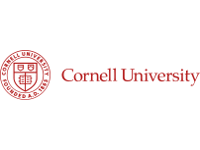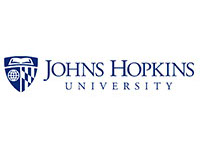
David Muller
Professor Applied and Engineering Physics
Cornell University
David Muller is the Samuel B. Eckert Professor of Engineering in the School of Applied and Engineering Physics at Cornell University, and the co-director of the Kavli Institute at Cornell for Nanoscale Science. His current research interests include developing the hardware and algorithms for high-speed pixelated detectors for imaging beyond the diffraction limit, and the atomic-scale control and characterization of matter for applications in energy storage and conversion. David is a graduate of the University of Sydney and received a Ph.D. from Cornell University. As a scientist at Bell Labs, he applied his research on imaging single atoms and atomic-scale spectroscopy to determine the physical limits on how small a transistor can be made. He has developed quantitative imaging and characterization methods to explore the chemistry, electronic structure and bonding inside objects as diverse as fuel cells, batteries, transistors, and two-dimensional superconductors. David is a fellow of both the American Physical Society and the Microscopy Society of America, and recipient of the MSA Burton Medal and MAS Duncumb Award.

Peter Ercius
Staff Scientist Molecular Foundry
Lawerence Berkley Lab
Peter Ercius graduated from Cornell University with a B.S. in applied and engineering physics in 2003. He remained at Cornell and completed a Ph.D. in applied and engineering physics with Professor David A. Muller in 2009. His dissertation project focused on three-dimensional (3D) electron tomography of semiconductor devices using scanning transmission electron microscopy (STEM). He then joined the NCEM facility as a collaborative postdoctoral researcher for 2 years before being hired as a permanent Staff Scientist of the Molecular Foundry. Peter is currently in charge of the electron tomography program at NCEM and the dual aberration-corrected TEAM 0.5. Dr. Ercius is a leading expert in electron tomography and collaborates with users of the Molecular Foundry on a wide range of projects including S/TEM atomic resolution imaging, electron tomography, 4D-STEM scanning diffraction, in situ liquid TEM, and electron energy loss spectroscopy (EELS).

Robert Hovden
Assistant Professor Department of Materials Science and Engineering
University of Michigan
Robert Hovden is an Assistant Professor in Materials Science at the University of Michigan, Ann Arbor. He completed his Ph.D. in Applied Physics at Cornell University. Utilizing electron microscopy he unveils new understanding of how structure at the atomic and nanoscale determines material properties at the macroscale—spanning a wide class of systems including 2D materials, next-generation energy devices, and biominerals.

Pinshane Huang
Assistant Professor in Department of Materials Science and Engineering
University of Illinois, Urbana-Champaign
Pinshane Y. Huang is an Assistant Professor in the Department of Materials Science and Engineering at the University of Illinois, Urbana-Champaign. She also holds appointments in the Materials Research Laboratory and Beckman Institute at UIUC. Pinshane holds a Ph.D. and an M.S. in Applied and Engineering Physics from Cornell University, as well as a B.A, in Physics from Carleton College. Her research has been featured in Nova, National Geographic, BusinessWeek, CBS News, Discover Magazine, and the Guinness Book of World Records.

Lena F. Kourkoutis
Associate Professor of Applied and Engineering Physics
Cornell University
Lena F. Kourkoutis is an Associate Professor of Applied and Engineering Physics and James C. and Rebecca Q. Morgan Sesquicentennial Faculty Fellow at Cornell University. Her electron microscopy group focuses on understanding and controlling nanostructured materials, from quantum materials to materials for energy storage to biomaterials. They have developed new high-resolution cryogenic techniques to gain access to low temperature electronic states as well as to study processes at liquid/solid interfaces.
Lena received her undergraduate degree in Physics from the University of Rostock, Germany in 2003, and then moved to Ithaca where she was awarded a Ph.D. in 2009. As a Humboldt Research Fellow, she spent 2011-2012 exploring cryo-electron microscopy in the Molecular Structural Biology Group at the Max Planck Institute of Biochemistry in Martinsried, Germany. She returned to Cornell University as a Postdoctoral Associate in 2012 and joined the Applied and Engineering Faculty in 2013. Kourkoutis is recipient of a 2014 Packard Fellowship, a 2016 Presidential Early Career Award for Scientists and Engineers, a 2017 NSF CAREER award, and the 2018 Burton Metal by the Microscopy Society of America. She is also a Kavli Fellow of the National Academy of Sciences.

Lynne Vincent
Assistant Professor of Management
Syracuse University
Lynne Vincent holds an M.S. and Ph.D. in Organizational Behavior from Cornell University, School of Industrial and Labor Relations. She is currently an assistant professor at the Whitman School of Management at Syracuse University. Before joining Syracuse University, she was a postdoc at the Owen Graduate School of Management at Vanderbilt University. Her research focuses on the moral and social implications of creativity for individuals, groups, and organizations. She teaches undergraduate courses on management and organizational behavior at Syracuse University.







